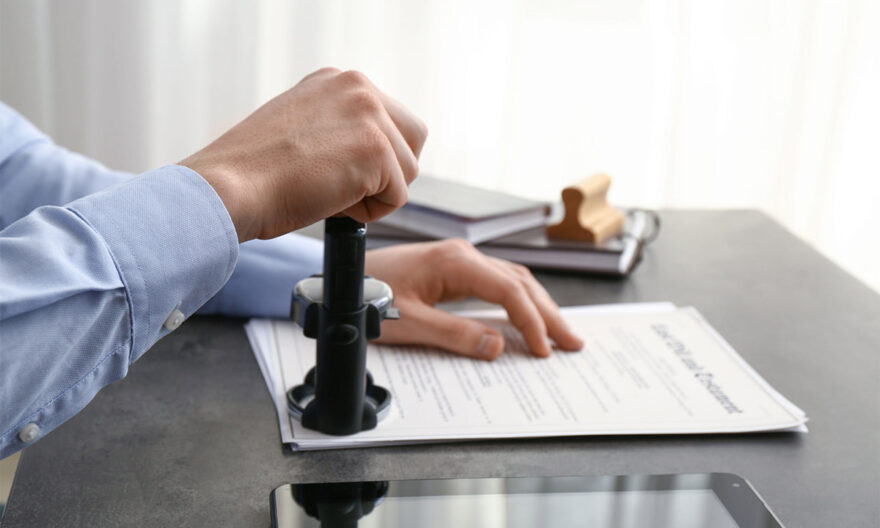
Using Singapore documents in Vietnam needs more than just translation. To make them valid overseas, people must complete a process called legalisation. It confirms that the document is real and approved by the right offices. For Vietnam, the process includes checks in Singapore and at the Vietnam embassy.
To begin, the Vietnam embassy legalisation process requires your papers to pass through different steps. This helps Vietnam know that your Singapore document is official. Many use this process when working, studying, or settling legal matters in Vietnam.
What is Document Legalisation
Legalisation proves that a document from one country can be trusted in another. It works like a stamp of trust between governments. In this case, Vietnam wants to make sure your Singapore documents are real before accepting them.
The legalisation of documents in Vietnam Embassy in Singapore happens after the local offices in Singapore check your papers. Once confirmed, the Vietnam embassy stamps or signs them to complete the process.
People usually legalise documents like birth certificates, business records, marriage papers, and educational results.
Step 1: Know Which Documents to Prepare
Start by picking the documents you plan to use in Vietnam. Each type follows its own rule. Here are common ones:
- Personal papers: birth, marriage, divorce
- School certificates: diplomas, transcripts
- Work-related papers: job letters, payslips
- Business papers: company registration, invoices
Each paper must stay clean, with no scribbles or damage. Before you rush ahead, check whether your document needs translation into Vietnamese before or after legalisation.
Make a full list so nothing gets missed in the next steps.
Step 2: Notarise Your Documents in Singapore
Before visiting the embassy, the Singapore side must confirm your documents. This starts with a notary public.
A notary stamps and signs your copy to say it’s true. This step protects both countries from false claims.
Bring the original and a clear photocopy. The notary will check the match before marking it. Without this, the embassy legalisation will not continue.
Once the notary finishes, you’re ready for the next check.
Step 3: Get Authentication from the Singapore Academy of Law
The Singapore Academy of Law (SAL) handles document checks for legal use abroad. After notarisation, head to SAL for authentication.
They stamp your document again. This confirms that the notary’s stamp is real. It’s a vital middle step between your notary and the embassy.
You can book this step online or in person. Processing takes a few working days, so plan.
Keep both the notary and SAL stamps on the same paper to avoid delays later.
Step 4: Visit the Vietnam Embassy in Singapore
Once SAL confirms your paper, carry it to the Vietnam Embassy. This is the final step in the legalisation of documents in Vietnam Embassy in Singapore.
At the embassy, staff check for all previous steps. If everything looks fine, they will stamp or sign the paper.
This step tells Vietnam, “This paper is real, and Singapore confirms it.” Bring your original paper, your passport, and any required forms.
Embassy staff may keep your documents for a few working days before returning them fully legalised.
Step 5: Translate the Document if Needed
Vietnamese offices may ask for documents in their language. After legalisation, you might need to translate your paper.
Choose a trusted translator who knows official terms. Sometimes, you must legalise the translated copy too.
Translation often follows legalisation, but some cases require both the original and the translated version. Always ask the embassy first before you act.
Check if the Vietnam offices need certified or standard translation before handing over the papers.
Tips to Speed Up the Process
To avoid mistakes or delays, follow these tips:
- Start early. Legalisation may take several weeks.
- Keep copies of each step for your records.
- Don’t staple or fold papers, embassies may reject damaged forms.
- Ask the embassy for the latest rules before you apply.
- Double-check if you need to legalise the translation too.
Smooth planning helps the legalisation move faster and with fewer problems.
What Happens After Legalisation
Once your documents carry the stamp from the legalisation of documents in Vietnam Embassy in Singapore, you can use them in Vietnam.
You may show them at schools, offices, or government counters. Officials in Vietnam will accept your paper as valid.
Keep the legalised paper safe and clean. In some cases, you may need to show it again for future use.
If you plan to use the document more than once, make a few certified copies.
Mistakes to Avoid
Many face issues because they skip a step. Here’s what to avoid:
- Using old, damaged documents
- Forgetting to notarise before heading to SAL
- Bringing poor-quality copies
- Skipping embassy rules
- Not asking about translation needs.
Every mistake slows you down or forces you to restart. To make sure your Vietnam embassy legalisation works the first time, follow the steps exactly.
When Should You Start the Legalisation
Legalisation takes time. Each step may stretch over days. Embassies and government offices close on public holidays too.
If you need the paper for work, school, or marriage, begin at least a month before.
Some urgent cases may allow for faster service, but never count on that. Regular steps offer better safety.
Mark dates clearly. Set reminders to collect your documents at each stage.
Can Someone Help You with the Process
Yes. While you can do it yourself, some people ask others to act for them. A trusted friend or family member can carry your paper.
They must bring your ID and a signed letter that says they act on your behalf.
This helps if you travel, fall sick, or have no time to visit each office. However, embassy staff will still check all paperwork before acting.
Be sure your helper knows each step before they begin.
Final Thought
Legalising your Singapore documents for use is a careful journey. You must follow every step, from notarisation to legalising documents in Vietnam Embassy in Singapore. Each part builds trust between the two countries. Miss one, and the process resets.
This process clears the way whether you’re moving, working, or studying in Vietnam. Start early, prepare well, and check each step. With the right action, your papers will reach Vietnam ready for use.
For More Information : Prasanna Devi



